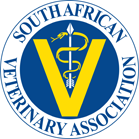Original Research
Implication of the knowledge and perceptions of veterinary students of antimicrobial resistance for future prescription of antimicrobials in animal health, South Africa
Journal of the South African Veterinary Association | Vol 90 | a1765 |
DOI: https://doi.org/10.4102/jsava.v90i0.1765
| © 2019 Peter W. Smith, Michael Agbaje, Lerica LeRoux-Pullen, Deborah van Dyk, Legesse K. Debusho, Aminu Shittu, Mohamed M. Sirdar, Olubunmi G. Fasanmi, Oluwawemimo Adebowale, Folorunso O. Fasina
| This work is licensed under CC Attribution 4.0
Submitted: 24 November 2018 | Published: 17 October 2019
Submitted: 24 November 2018 | Published: 17 October 2019
About the author(s)
Peter W. Smith, Department of Production Animal Studies, University of Pretoria, Pretoria, South AfricaMichael Agbaje, Department of Veterinary Microbiology and Parasitology, College of Veterinary Medicine, Federal University of Agriculture, Abeokuta, Nigeria
Lerica LeRoux-Pullen, Department of Paraclinical Sciences, University of Pretoria, Pretoria, South Africa
Deborah van Dyk, Department of Production Animal Studies, University of Pretoria, Pretoria, South Africa
Legesse K. Debusho, Department of Statistics, College of Science, Engineering and Technology, University of South Africa, Johannesburg, South Africa
Aminu Shittu, Department of Public Health and Preventive Medicine, Faculty of Veterinary Medicine, Usmanu Danfodiyo University, Sokoto, Nigeria
Mohamed M. Sirdar, Department of Production Animal Studies, University of Pretoria, Pretoria, South Africa; and, Onderstepoort Veterinary Research, Agricultural Research Council, Pretoria, South Africa
Olubunmi G. Fasanmi, Department of Animal Health, Federal College of Animal Health and Production Technology, Ibadan, Nigeria
Oluwawemimo Adebowale, Department of Veterinary Public Health and Reproduction, College of Veterinary Medicine, Federal University of Agriculture, Abeokuta, Nigeria
Folorunso O. Fasina, Emergency Centre for Transboundary Animal Diseases, Food and Agriculture Organisation of the United Nations, Dar es Salaam, United Republic of Tanzania; and, Department of Veterinary Tropical Disease, University of Pretoria, Pretoria, South Africa
Abstract
Understanding the knowledge and perceptions of veterinary students of antimicrobial resistance (AMR) as potential future prescribers of antimicrobials may serve as an opportunity to improve stewardship of AMR. Pre-final (n = 42) and final (n = 29) year veterinary students of the University of Pretoria completed questionnaires to determine their knowledge and perceptions of AMR. Of the 71 respondents, mixed practice (48%) and small animal practice (45%) were the most preferred career choices post-graduation, with the field of gross pathology being the least preferred. Over 80% of the respondents believed that veterinary practitioners’ misuse of antimicrobials contributes to AMR and a higher percentage (98.6%) believed that farmers’ misuse of antimicrobials encourages the development of AMR, in particular, in food animals (60.6%) compared to companion animals (50.7%). Agreement in the ranking of abuse of antimicrobials between pre-final and final year students was fair (36.4%; kappa 0.3), and the most abused antimicrobials in descending order listed by the students were tetracyclines, penicillins, sulphonamides and aminoglycosides. There was wide disparity between training and potential field application, as well as variations in the correct matching of antimicrobials to their respective antibiotic classes. Responses to the clinical application of antimicrobials also varied widely. Despite the apparent teaching of AMR to veterinary students, gaps may exist in the translation of theoretical concepts to clinical applications, hence the need for focused and targeted antimicrobial prescription and stewardship training to bridge these potential identified gaps.
Keywords
antimicrobials; stewardship; training; undergraduate students; perception; practice
Metrics
Total abstract views: 3777Total article views: 3761
Crossref Citations
1. Antimicrobial use and practices by animal health professionals in 20 sub-Saharan African countries
Stanly Fon Tebug, Mohamed Moctar Mouliom Mouiche, Wilfred Angie Abia, Gabriel Teno, Christian Keambou Tiambo, Frédéric Moffo, Julius Awah-Ndukum
Preventive Veterinary Medicine vol: 186 first page: 105212 year: 2021
doi: 10.1016/j.prevetmed.2020.105212
